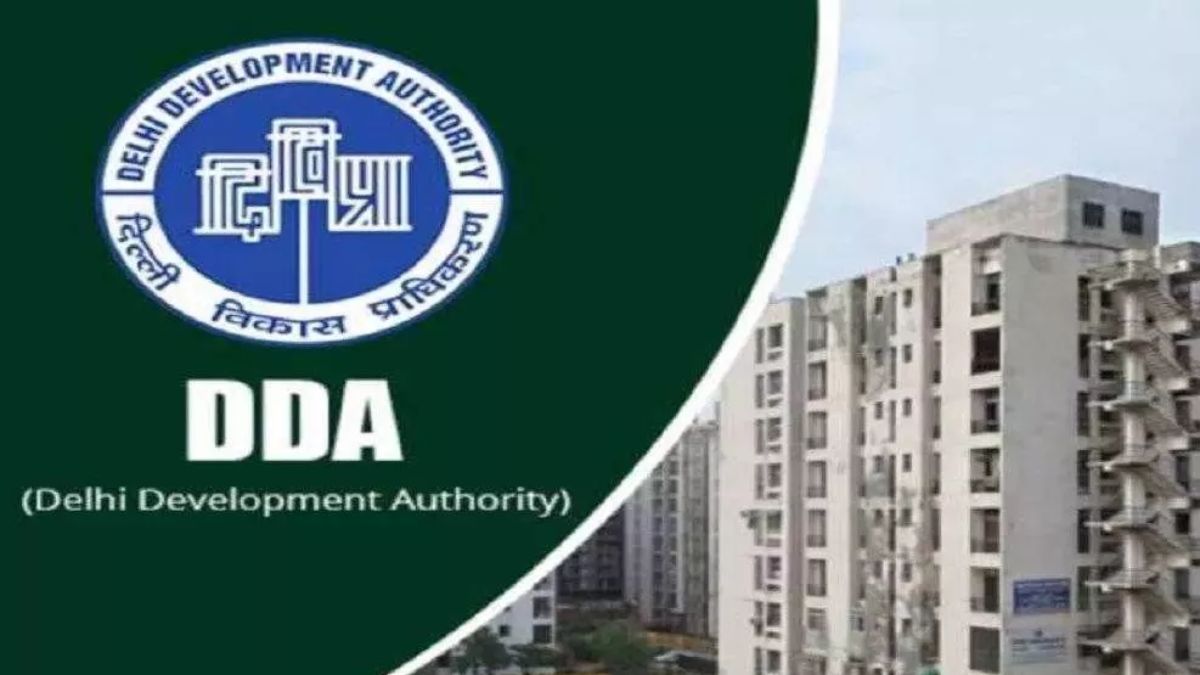The Delhi Development Authority (DDA) has allocated an impressive ₹8,720 crore for the financial year 2025-26.
The budget, which was approved in a high-level meeting, outlines key investments in civic infrastructure and the development of public spaces, sports complexes, and environmental upgrades in the national capital. A significant portion of the budget — ₹4,140 crore — is earmarked for capital expenditure. This fund will focus on a range of urban development projects, including the creation of new roads, upgradation of parks, and crucial improvements in air quality through road repairs and reconstruction efforts. These measures are expected to lay the groundwork for the city’s long-term urban planning and environmental sustainability goals.
One of the most notable aspects of the budget is the allocation of funds for the development of expansive public spaces along the Yamuna floodplain. This initiative aims to transform the stretch into vibrant, accessible spaces for Delhi’s residents, with parks and green areas being integrated to offer more recreational spaces. Experts believe that this will not only improve the quality of life for residents but also contribute significantly to the city’s efforts to reduce its carbon footprint by enhancing its green infrastructure. In line with its commitment to sustainable development, the DDA has also allocated ₹82 crore towards the ongoing projects on the Yamuna riverfront, including developments like Asita East near ITO Bridge, Baansera near Sarai Kale Khan Bus Depot, and Vasudev Ghat near ISBT. These riverfront projects are expected to serve as models for urban waterfront development, combining environmental restoration with modern amenities. Additionally, ₹100 crore has been set aside for the construction of the ‘Bharat Vandana Park’ in Sector 20, Dwarka, which is envisioned as a major recreational and cultural landmark.
The city’s parks, which play an essential role in its ecological balance, will also see substantial investments. ₹204 crore has been allocated for the general upgradation of green spaces, while ₹19 crore will go towards redeveloping four parks behind the Red Fort. These include Dilli Chalo Park, Ghata Masjid Park, Sadhbhavna Park, and Urdu Academy Park. Such initiatives reflect the DDA’s commitment to preserving Delhi’s heritage while fostering a more sustainable urban environment. In terms of transportation, the DDA’s focus on sustainable mobility is clear. The budget has earmarked ₹75 crore for the Delhi Metro’s Phase IV expansion, which is crucial in reducing the city’s dependency on private transport and promoting public transit. Furthermore, ₹38 crore has been allocated for the construction of multilevel car parking lots in key areas such as Nehru Place and Bhikaji Cama Place, which will help alleviate congestion and improve traffic management.
Another key development area is housing. With urbanisation on the rise, affordable housing remains a priority. The DDA has allocated ₹580 crore for ongoing housing projects, including the construction of 1,026 two-BHK apartments in Karkardooma, designed in accordance with Transit-Oriented Development (TOD) norms. This project aims to provide more affordable housing options close to transport hubs, reducing travel time for residents and contributing to a more sustainable city model. Sports and recreation have also been given a substantial boost in the FY26 budget. ₹250 crore has been allocated for the construction of new sports complexes in Dwarka, Rohini, and at the Golf Course in Dwarka. These sports facilities are expected to cater to Delhi’s growing sporting needs and encourage more residents to engage in healthy activities, contributing to the overall well-being of the population. Additionally, the DDA has announced plans for a multi-integrated stadium and sports complex at Rohini and Narela, further underscoring the city’s commitment to developing a comprehensive sports infrastructure.
The budget also lays out plans for sustainable revenue generation. Major development projects, including hotels in Dwarka and Nehru Place, a hospital in Dwarka, and corporate offices in Rohini, will be rolled out on a licence fee basis. These initiatives are expected to bring in consistent revenue for the DDA while also meeting the city’s growing demand for modern facilities. Moreover, the DDA has granted approval for a change in land use on Minto Road, converting an area of 1.41 hectares from a recreational park to a residential zone for staff quarters. This decision aligns with the growing need for residential facilities in central Delhi, though it is likely to spark discussions regarding the balance between urban development and green space preservation.
This comprehensive approach to urban planning, with a clear focus on sustainability, public infrastructure, and sports, signifies a step forward in creating a more eco-friendly and liveable Delhi. As these projects take shape, they will play a pivotal role in shaping the city’s future, ensuring that growth is not only measured in terms of economic development but also in terms of environmental and social sustainability.
Also Read : https://urbanacres.in/vidyavihar-road-bridge-now-in-2026/


